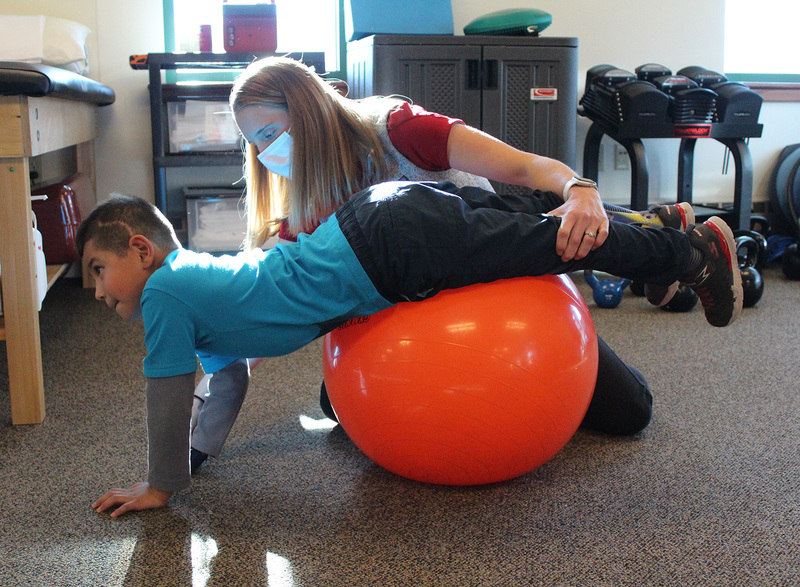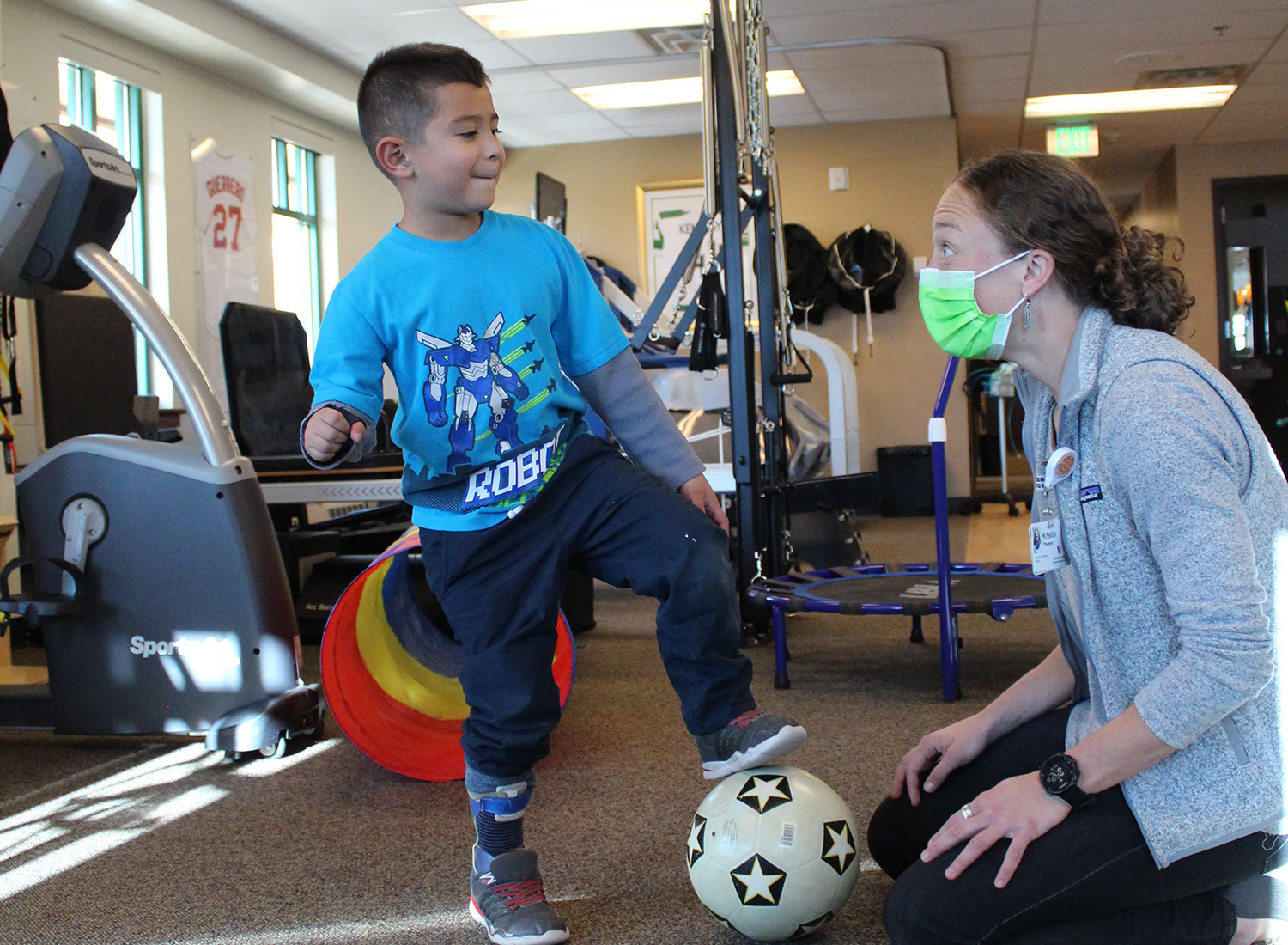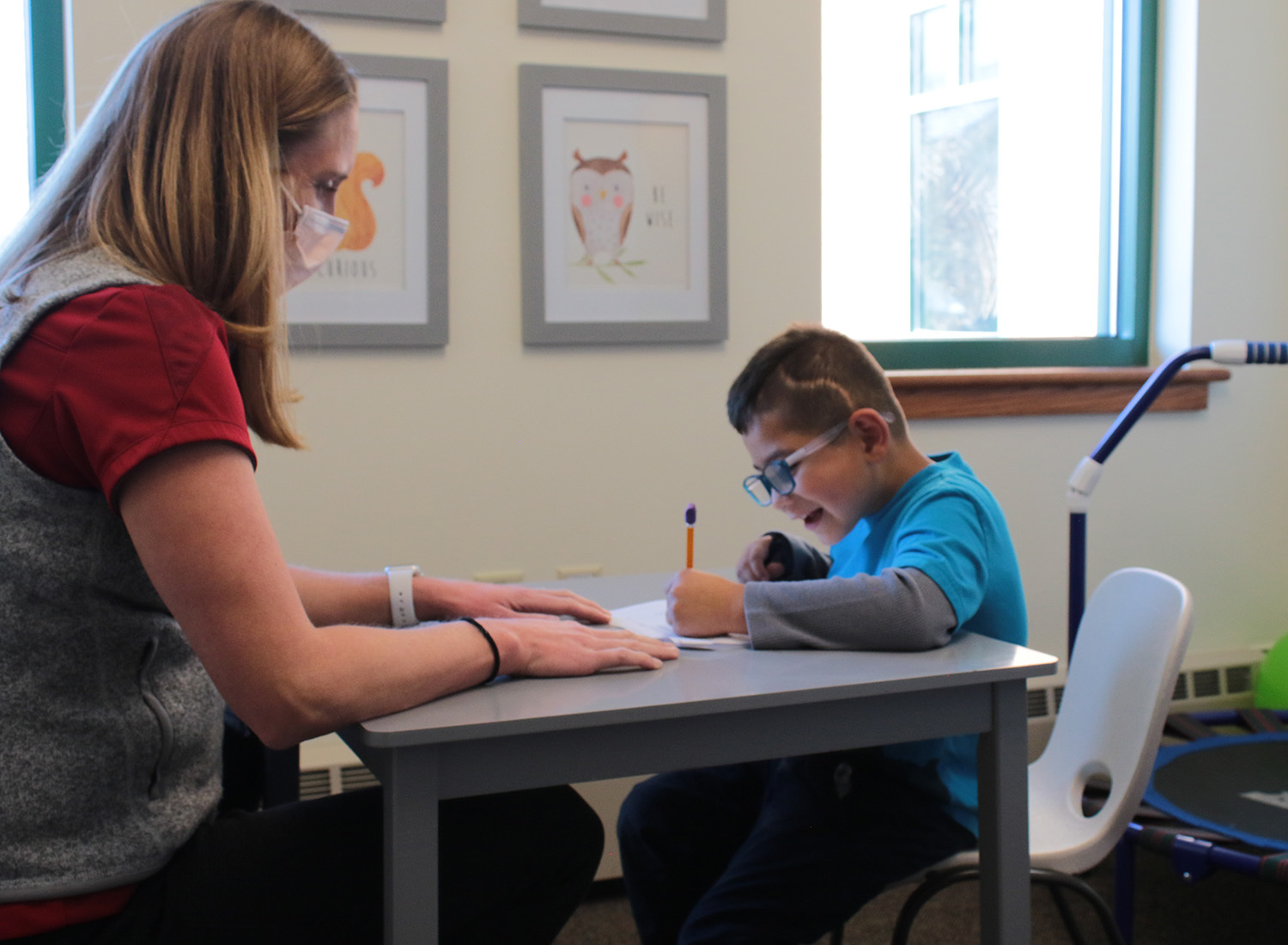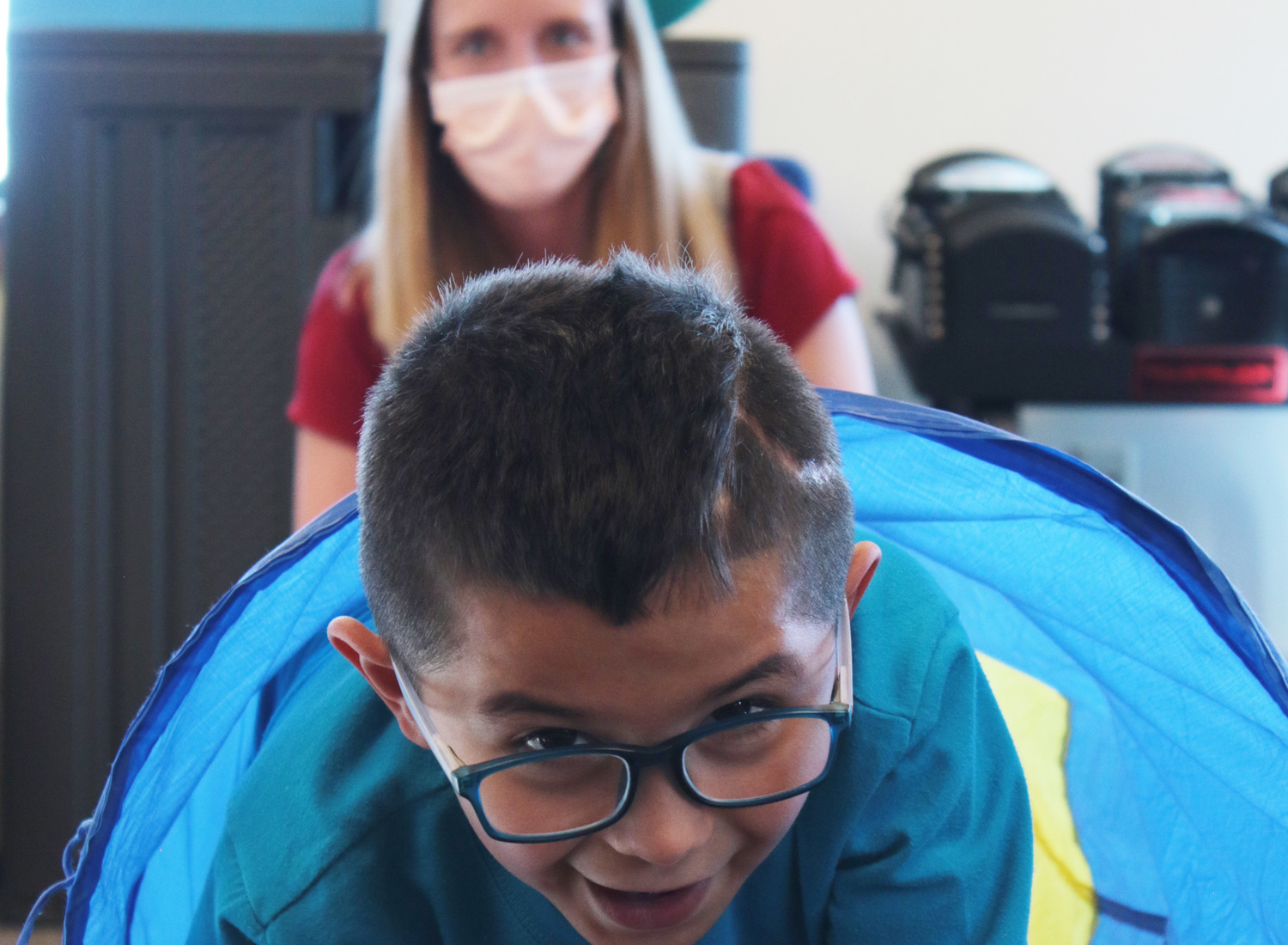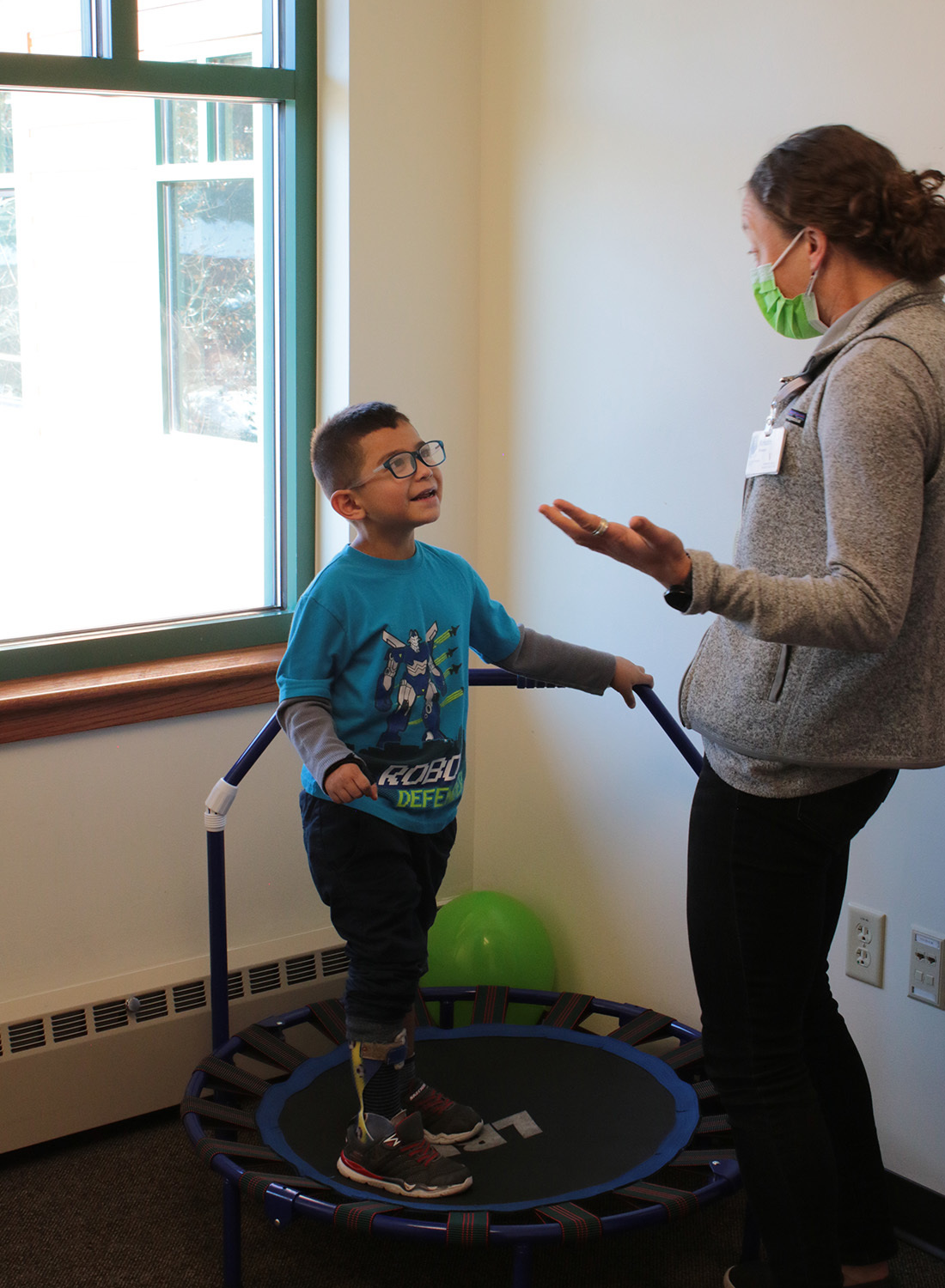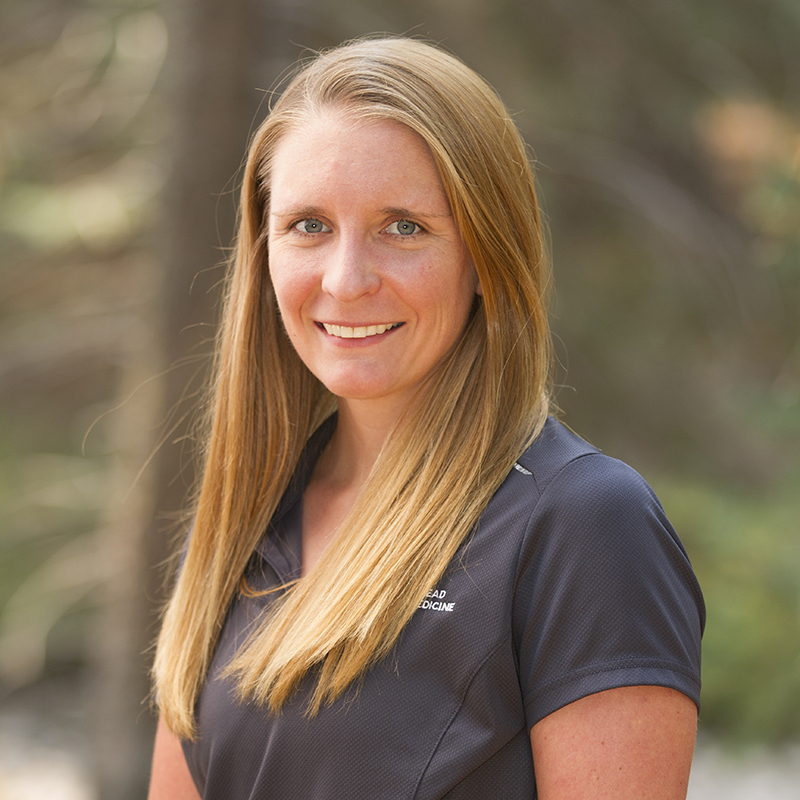Vail Health Howard Head Sports Medicine’s pediatric physical and occupational therapists work with Colorado Mountain Medical’s pediatricians to help children needing extra support reach their full potential and enjoy the activities they love.
Pediatric Physical Therapists work with children in the following areas.
- Fine motor skills – coordination of small motor movements mainly in the hands and fingers; grasping skills.
- Gross motor skills – coordination of bigger movements for walking, running, jumping, skipping, and hopping.
- Visual motor skills – small motor movements in coordination with the eyes; may include tasks such as cutting, drawing, and writing.
- Strength and endurance – related to school, home, and play activities.
- Sensory processing and sensorimotor skills.
- Self-help skills such as, dressing, grooming, bathing tasks.
- Feeding – sensory and motor approach.
- Visual perception – how visual information is perceived; visual memory, visual figure ground, visual spatial awareness, visual discrimination, visual.
- Handwriting
- Eye-hand coordination – ability to coordinate eye movement with hand movement; ball skills.
- Social skills
- Play skills
- Autism Spectrum Disorder
- Sensory Processing Disorder
- Apraxia
- Developmental Delay
- Feeding Difficulties
- ADHD/Behavioral concerns
- Fine Motor Delay
- Handwriting Deficits
- Motor Planning and Coordination Disorders
- Visual Perceptual Deficits
- Activities of Daily Living/Self-Care
- Receptive and expressive language
- Intelligibility of speech
- Fluency of speech
- Cognitive and executive functioning
- Feeding and swallowing
- Social skills
- Vocal quality
- Need for Assistive Technology/Augmentative and Alternative Communication (AAC)
Frequently Asked Questions (FAQ’s)
What is the difference between PT and OT?There is a lot of overlap when it comes to your child seeing a physical therapist (PT) versus an occupational therapist (OT). In general, OTs work on functional skills of daily life, helping children get better at all of the activities, or occupations, that they need to do during the day. For example, eating, dressing, writing, playing, learning, and growing. OT’s tend to look through a holistic lens at the physical, developmental, mental and emotional connections. OT’s also tend to focus on fine motor skills. PTs tend to focus on bigger movements and the balance and coordination required to perform activities of daily living and play with their siblings and peers. These activities may include walking, running, jumping, skipping, and riding a bike. PTs help children navigate their environment and get to and from where they need to go at home, school, and in the community. Their focus is largely on assessment, intervention, and rehabilitation of the musculoskeletal system so that the body functions properly.
How long will my child need therapy?
This is different for each child depending on their development and specific needs. Some children will only need one session to be evaluated, while others may need therapy more regularly for a longer period of time to improve their daily functioning. Your child’s therapist will go over how long they think your child will need therapy at their first visit.
How frequently will my child be seen for therapy?
Typically kids are seen one time per week, but this is individualized based on your child’s needs. Some kid’s benefit from more frequent sessions for a shorter duration, for example, 3-4 times a week for 2 weeks to focus on a specific skill.
What happens at our first session?
At your first session, your therapist will review your child's medical history, current performance, and your desired goals for your child. The therapist may do a variety of assessments to get a baseline of your child’s current level of functioning and performance.
Which insurances do you accept?
- Howard Head accepts all major insurances and Medicaid.






